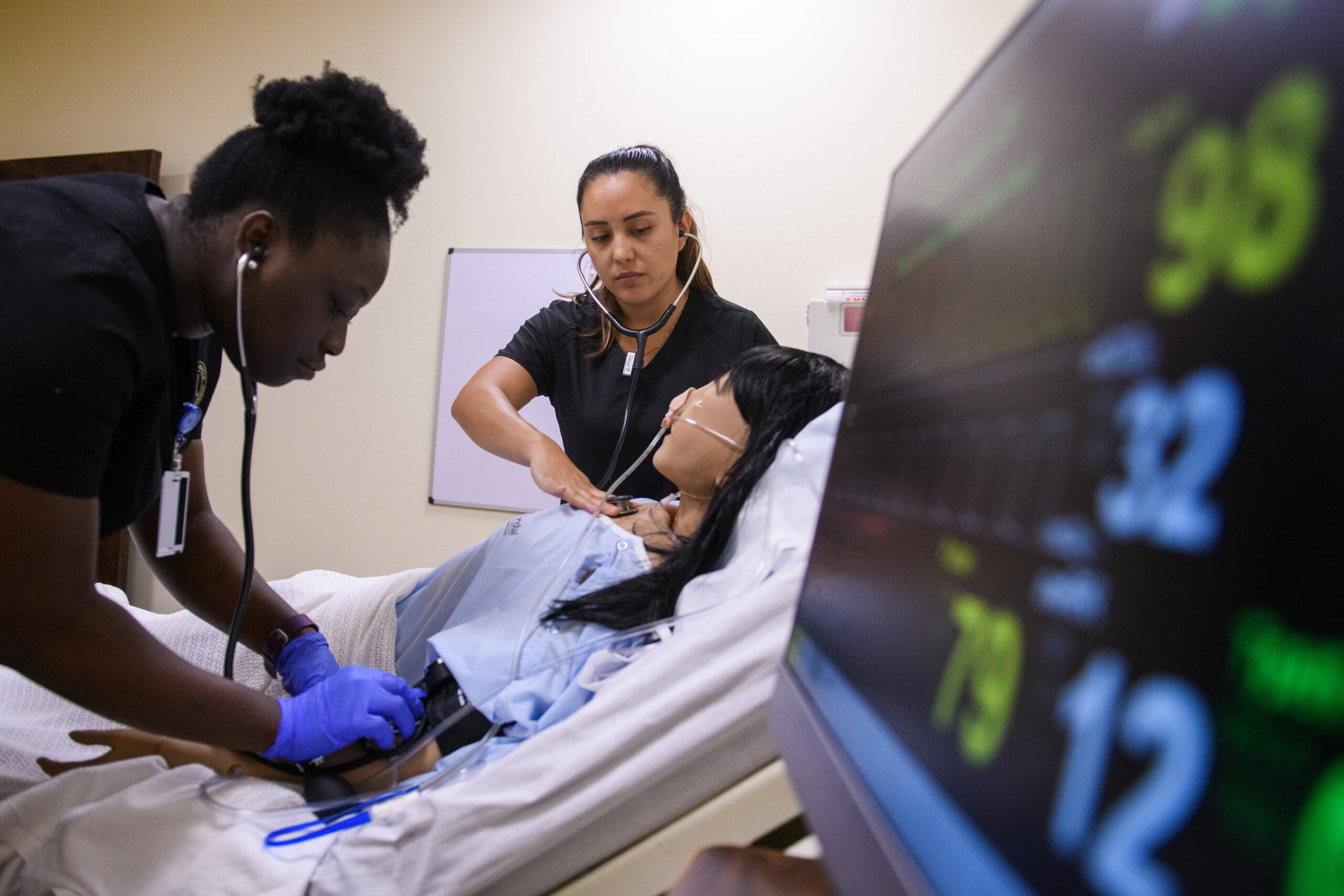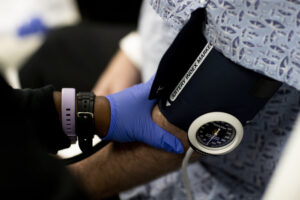
Thanks to a new direct-entry option at Brenau University, high school seniors with strong academic records can gain acceptance into the Bachelor of Science in Nursing program in the Mary Inez Grindle School of Nursing of the Ivester College of Health Sciences.
Previously all students applied to the nursing program after four semesters of study, typically near the end of sophomore year. This traditional pathway is still an option for transfer applicants, but freshmen accepted under the new direct-entry option will no longer have to apply to the nursing program.
Troy Heidesch, director of the Mary Inez Grindle School of Nursing, said the direct-entry program includes a number of benefits for students, including support, mentorship, exposure and experience.

“Unlike the traditional BSN route at most schools, where students wait two years to start working with nursing faculty and learning to become a nurse, direct-entry students have the opportunity to meet and interact with nursing faculty, including being assigned a nursing faculty adviser, and student mentors from the very beginning of their educational journey at Brenau,” Heidesch said. “They learn in an atmosphere of collaboration with a diverse faculty and student body and receive a strong undergraduate liberal arts curriculum in a supportive environment.”
Those all are factors that led Shakhenyah Reyes-Fernandez, a senior at Johnson High School in Gainesville, Georgia, who participates in the Ivester Early College program, to apply to Brenau’s nursing program. A first-generation college student, she is among the first students accepted through the new direct-entry program.
“Many nursing students at Brenau have graduated successfully and pursued their goals,” she said. “Another reason for my decision is that Brenau is a private university that offers students such as myself the benefit of smaller class sizes, one-on-one attention, and a more focused and devoted curriculum.”
The average size for undergraduate classes in nursing is small, with a student-to-faculty ratio of 13-to-1. Undergraduate students in nursing also have the opportunity to study abroad through the International Field Biology and Island Microcosms courses.
Direct-entry nursing students like Reyes-Fernandez will have special status that allows them to take some nursing courses prior to entering the clinical phase of the nursing program. Other perks for direct-entry students include participation in nursing program events and the opportunity to join the Brenau Association of Nursing Students.
This early exposure to nursing as a career field helps students ensure they are on the right path, but Reyes-Fernandez already knows nursing is her calling.
“As I go into college, my desire has been to major in nursing,” Reyes-Fernandez said. “My commitment to serve and help others motivated me to make this decision. I’ve made the choice to become a nurse because I’ve discovered it’s my passion, and I believe joining Brenau’s nursing program was a big step toward pursuing my goals.”
The additional time in a specialized nursing education environment also will benefit health care and the community with more and better prepared nurses, Heidesch said.

Registered nursing is one of the fastest-growing occupations nationally, according to the Bureau of Labor Statistics. The bureau predicts 9% growth nationally through 2030 with about 194,500 annual openings for registered nurses, on average.
Georgia Gov. Brian Kemp issued an executive order in April to create a task force aimed at increasing the state’s workforce in health care, including nurses. The Georgia Department of Labor predicts an average of 6,340 annual openings statewide for registered nurses through 2028. The state’s pre-existing nursing shortage was exacerbated by the COVID-19 pandemic, and registered nurses in Georgia now can expect to earn an average of $75,000 to $80,000 a year according to federal statistics.
“The direct-entry program is reserved for those students who achieve high academic standards in their high school work,” Heidesch said. “Prospective students who do not yet meet that criteria can still apply to Brenau as a pre-nursing major and then apply to the nursing program after four semesters if they meet all the requirements.”
To progress through the program, direct-entry students must maintain a number of standards including a minimum GPA, activity participation, course completion and nursing observation. Students also must pass the HESI exam with an overall score of at least 75 at the end of the sophomore year in order to enter the clinical phase of the nursing program.

